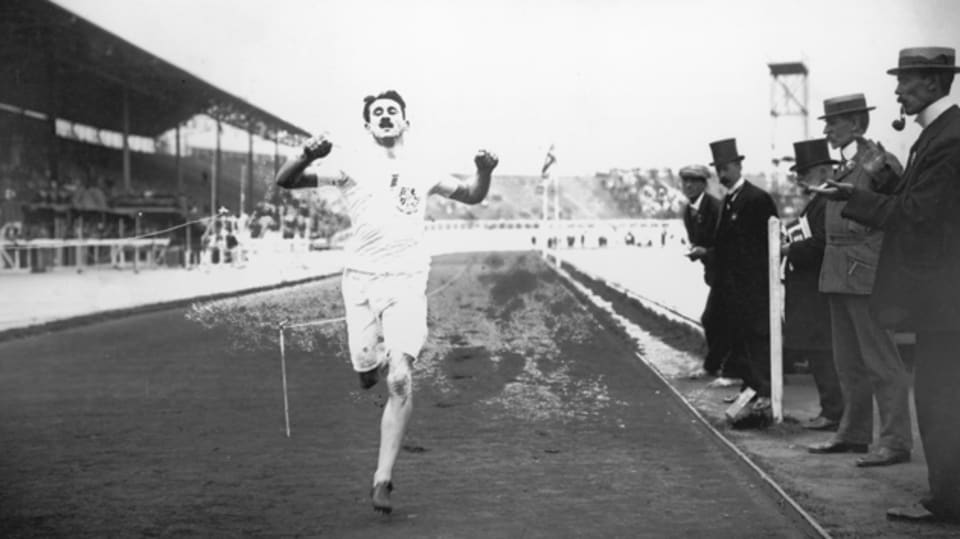Halswelle wins controversial 400m gold
Wyndham Halswelle could reasonably have expected to mount a strong challenge in London after finishing second in the Intercalated Games two years previously, but few could have foreseen the manner in which he won his only gold medal in front of his home crowd.

The London-born athlete came into the final, on 23 July, in good form. He had qualified faster than anyone else, setting a then-Olympic record of 48.4 seconds in the second round having fallen only marginally short in the first. The event was not run in lanes at this points in the Games’ history, so one rule, printed in the programme for the day’s events, bore particular scrutiny.
“Any competitor wilfully jostling or running across or obstructing another competitor so as to impede his progress shall forfeit his right to be in the competition and shall not be awarded any position or prize that he would otherwise have been entitled to,” it read, and this would loom large over Halswelle’s Olympic legacy. The final appeared to have been won by the American, John Carpenter, in 47.8 seconds, with Halswelle in second – but one of umpires, a Mr Roscoe Badger, signalled that Carpenter had obstructed Halswelle as he attempted to pass him. This was permitted under American regulations, but not in those deployed in Britain.
Badger’s testimony, given at an inquiry that night, read: “The position of [William] Robbins… was that he was leading and about a yard in front of Carpenter. Robbins and Carpenter were in such a position as to compel Halswelle to run very wide all round the bend, and as they swung into the straight Halswelle made a big effort and was gaining hard; but running up the straight the further they went the wider Carpenter went out from the verge, keeping his right shoulder sufficiently in front of Mr. Halswelle to prevent his passing.
“When they had run 30 yards up the straight Carpenter was about 18 inches off the outside edge of the track. I at once ran up the track, waving my hands to the judges to break the worsted.”
The race was declared void after all inquiries had been heard, much to the consternation of the American camp. A re-run was scheduled for July 25, but neither Taylor nor Robbins arrived to participate – this was in protest at what was seen as a decision that had treated them unfairly. Halswelle barely broke into a run, going round in 50 seconds, and took gold with the only walkover in the Games’ history.
It was not really a fitting end for anyone, including Halswelle, of whom little more was seen in athletics. An army man who had fought in the Boer War and was encouraged into athletics by his superiors upon returning in 1904, his senior officers were concerned that his side career was taking advantage of him and, a brief appearance in Scotland later in 1908 aside, he did not run competitively again after the Games. He died in 1915, at the age of just 32, killed by a sniper’s bullet in France during the First World War. His was one of the shorter stints in athletics and one of the stranger Olympic victories, but they wrote their own page in this distinctly unique edition of the Games.
